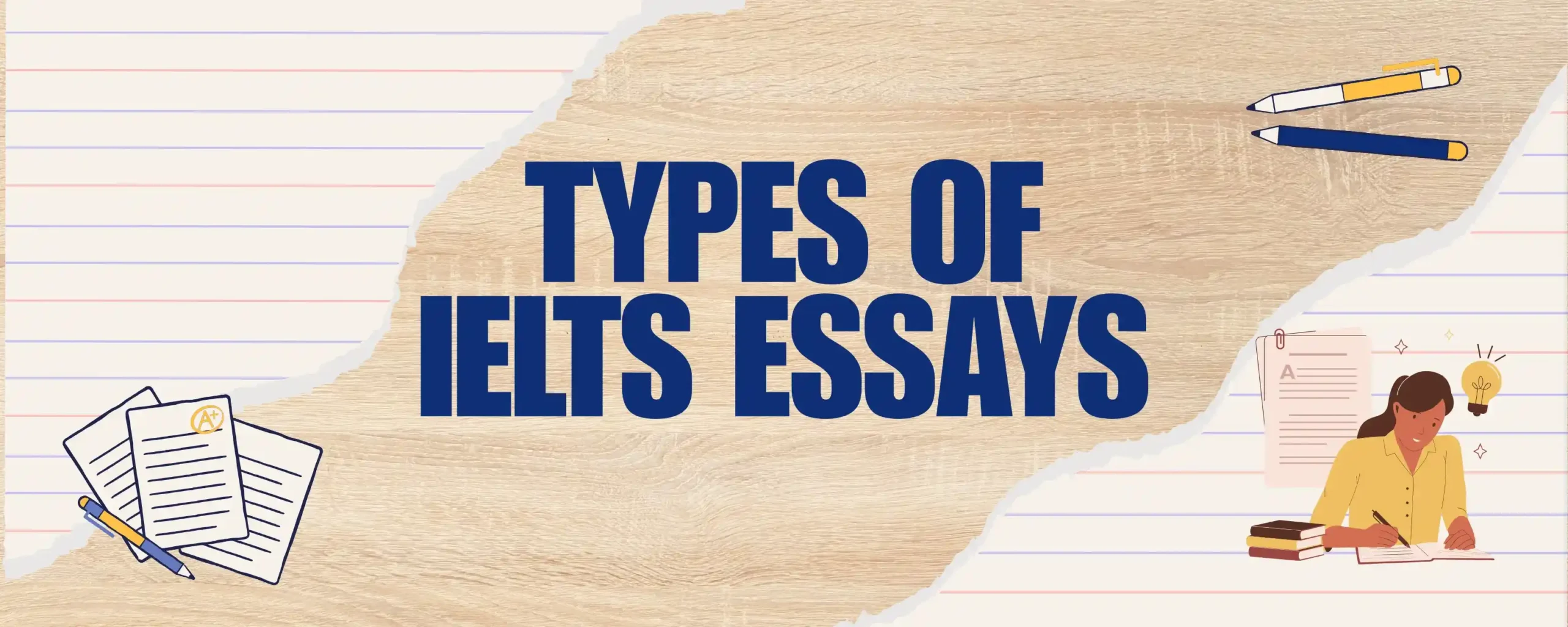IELTS Writing Task 2 constitutes a fundamental aspect of the International English Language Testing System (IELTS), specifically designed to evaluate your academic writing skills.
This task is pivotal as it not only assesses your ability to articulate opinions but also tests your capability to construct coherent arguments and present them persuasively in English.
Importance and Purpose of IELTS Writing Task 2
- Assessment Objective: The primary objective of IELTS Writing Task 2 is to gauge your proficiency in expressing and supporting a viewpoint on a given topic within an academic context. It tests your ability to engage critically with issues, analyze arguments, and communicate ideas effectively through writing.
- Skills Evaluated: Beyond language proficiency, the task evaluates your capacity to structure essays logically, use appropriate vocabulary and grammar, and maintain coherence and cohesion throughout your writing. These skills are crucial for academic and professional communication in English-speaking environments.
Format and Structure of IELTS Writing Task 2
- Question Types: Task 2 prompts typically fall into several categories: Opinion essays, where you express personal views; Discussion essays, requiring analysis of both sides of an issue; Problem-Solution essays, focusing on identifying and resolving problems; and Advantages/Disadvantages essays, which assess your ability to weigh pros and cons of a topic.
- Response Format: You are expected to write a formal essay in response to the prompt, structured with an introduction, body paragraphs, and a conclusion. This format ensures clarity and coherence in presenting your arguments and ideas.
Understanding the Task Requirements
IELTS Writing Task 2 presents several types of essay questions, each requiring a specific approach:
- Opinion Essays: These essays ask you to express your personal opinion on a topic. You must clearly state your viewpoint in the introduction and support it throughout the essay with relevant examples and arguments.
- Discussion Essays: Here, you are required to discuss both sides of an issue or situation. It’s essential to provide a balanced analysis, weighing the advantages and disadvantages before presenting your opinion in the conclusion.
- Problem-Solution Essays: This type focuses on identifying a specific problem and proposing effective solutions. You need to outline the problem, discuss its causes and consequences, and propose practical solutions with supporting details.
- Advantages/Disadvantages Essays: In these essays, you have to talk about the advantages and disadvantages of a certain problem or fashion. You should provide examples to illustrate each point and evaluate the overall impact of the topic.
Understanding these essay types helps you structure your response effectively and ensure you address all aspects of the task.
Planning Your Essay for IELTS Writing Task 2
Effective planning is crucial for coherence and clarity in your essay:
- Outlining: Create a clear outline with an introduction, several body paragraphs (usually two or three), and a conclusion. This roadmap helps you organize your thoughts and ensures a logical flow of ideas throughout your essay.
- Brainstorming: Generate ideas and arguments related to the essay prompt. Consider different perspectives and examples that support your viewpoint. This brainstorming phase helps you identify key arguments and develop a coherent argumentative strategy.
Structuring Your Essay
A well-structured essay follows a clear format:
- Introduction: Start with an engaging hook or background information on the topic to capture the reader’s attention. State your thesis or main argument clearly in one or two sentences to guide the direction of your essay.
- Body Paragraphs: Each paragraph should focus on a single main idea or argument that supports your thesis statement. Begin with a topic sentence that introduces the main point, followed by supporting evidence, examples, or data to strengthen your argument.
- Conclusion: Conclude your essay with – In conclusion, we can clearly see that [restate your thesis in a new way to reinforce your position]. Throughout this essay, we have examined [briefly highlight the main points or arguments discussed in your body paragraphs]. Ultimately, we should [end with a strong closing statement or a call to action that leaves a lasting impression on the reader].
Developing Strong Arguments
To develop strong arguments in your essay:
- Support with Evidence: Use specific examples, facts, statistics, and real-life scenarios to support your arguments. This not only strengthens your essay but also demonstrates your ability to critically analyse and evaluate the topic.
- Counter Arguments: Recognise competing arguments and provide evidence and logical arguments to support your positions. This demonstrates your awareness of different perspectives and enhances the credibility of your own arguments.
- Critical Analysis: Evaluate the implications and significance of your arguments. Discuss the broader implications of the topic and how your arguments contribute to a deeper understanding or resolution of the issue.
Using Cohesive Devices
Cohesive devices, including the joining of words and sentences, are essential for:
- Connecting Ideas: Use transition words (e.g., however, moreover, therefore) to link sentences and paragraphs logically. This helps maintain the coherence and flow of your essay, guiding the reader through your arguments smoothly.
- Structuring Arguments: Signal contrasts, comparisons, and cause-effect relationships to enhance the coherence of your essay. Effective use of cohesive devices improves readability and clarity, ensuring that your arguments are presented in a structured and organized manner.
Maintaining Formal Tone and Style
Maintaining a formal tone and style is essential in academic writing:
- Language Choice: Use academic vocabulary and avoid colloquial expressions or slang. Clear and precise language enhances the professionalism and credibility of your writing.
- Grammar and Syntax: Ensure sentences are grammatically correct and varied in structure to maintain reader interest and clarity. Pay attention to sentence structure, punctuation, and word choice to convey your ideas accurately and effectively.
How to Manage Your Time?
Effective time management is crucial during the exam:
- Planning: Allocate specific time for planning, writing, and revising your essay. Set deadlines for each stage of the writing process to ensure completion within the allotted time frame.
- Monitoring: Keep track of time during each phase to ensure you stay on schedule. This helps maintain focus and prevents last-minute rushes, allowing you to produce a well-structured and polished essay.
- Reviewing: Reserve time at the end to review and edit your essay for coherence, clarity, and adherence to task requirements. Proofread carefully for grammatical errors and inconsistencies in argumentation to ensure your essay meets the highest standards.
Common Mistakes to Avoid in IELTS Writing Task 2
Avoid these common pitfalls in IELTS Writing Task 2:
- Irrelevant Arguments: Stay focused on the essay prompt and avoid straying from the main topic. Ensure all arguments and examples directly relate to the thesis statement and essay question.
- Lack of Clarity: Clearly articulate your ideas and arguments to avoid confusion. Use straightforward language and logical progression of ideas to communicate effectively with the reader.
- Grammatical Errors: Proofread your essay for grammar, punctuation, and spelling mistakes. Ensure your writing is polished and professional, as errors can detract from the overall quality of your essay.
Conclusion
Mastering IELTS Writing Task 2 requires practice, preparation, and attention to detail. It is crucial for evaluating your ability to articulate opinions, construct coherent arguments, and present them effectively in English.
This task assesses critical engagement with topics, logical essay structure, vocabulary use, grammar, and coherence—essential for academic and professional communication.
Understanding various question types—opinion, discussion, problem-solution, advantages/disadvantages—helps in structuring responses effectively.
Planning with outlining and brainstorming aids coherence, while clear introductions, focused bodies, and concise conclusions enhance clarity.
Strong arguments are built on evidence, examples, and critical analysis, addressing counter arguments for credibility.
Cohesive devices such as transitions aid in maintaining flow, and maintaining a formal language style ensures professionalism. Effective time management is crucial to avoid common mistakes like irrelevant points or grammatical errors.
Consistent practice with different essay types and feedback from instructors or peers can further enhance your proficiency in tackling IELTS Writing Task 2 effectively.
By adhering to these strategies, you can improve your writing skills and achieve a higher band score in the IELTS exam. With dedication and perseverance, you can confidently approach Task 2, demonstrating your English language proficiency and aiming for your desired band score.





